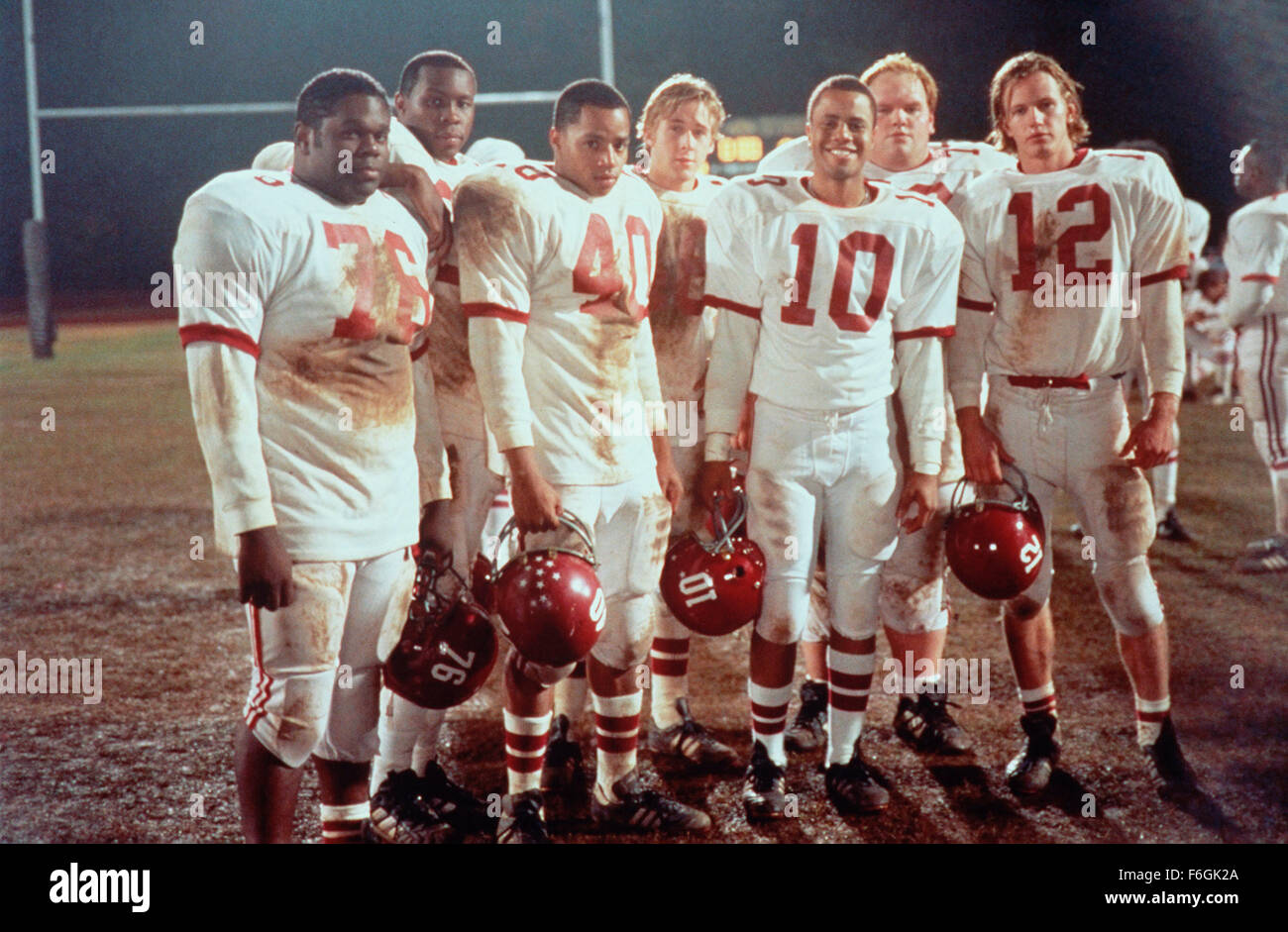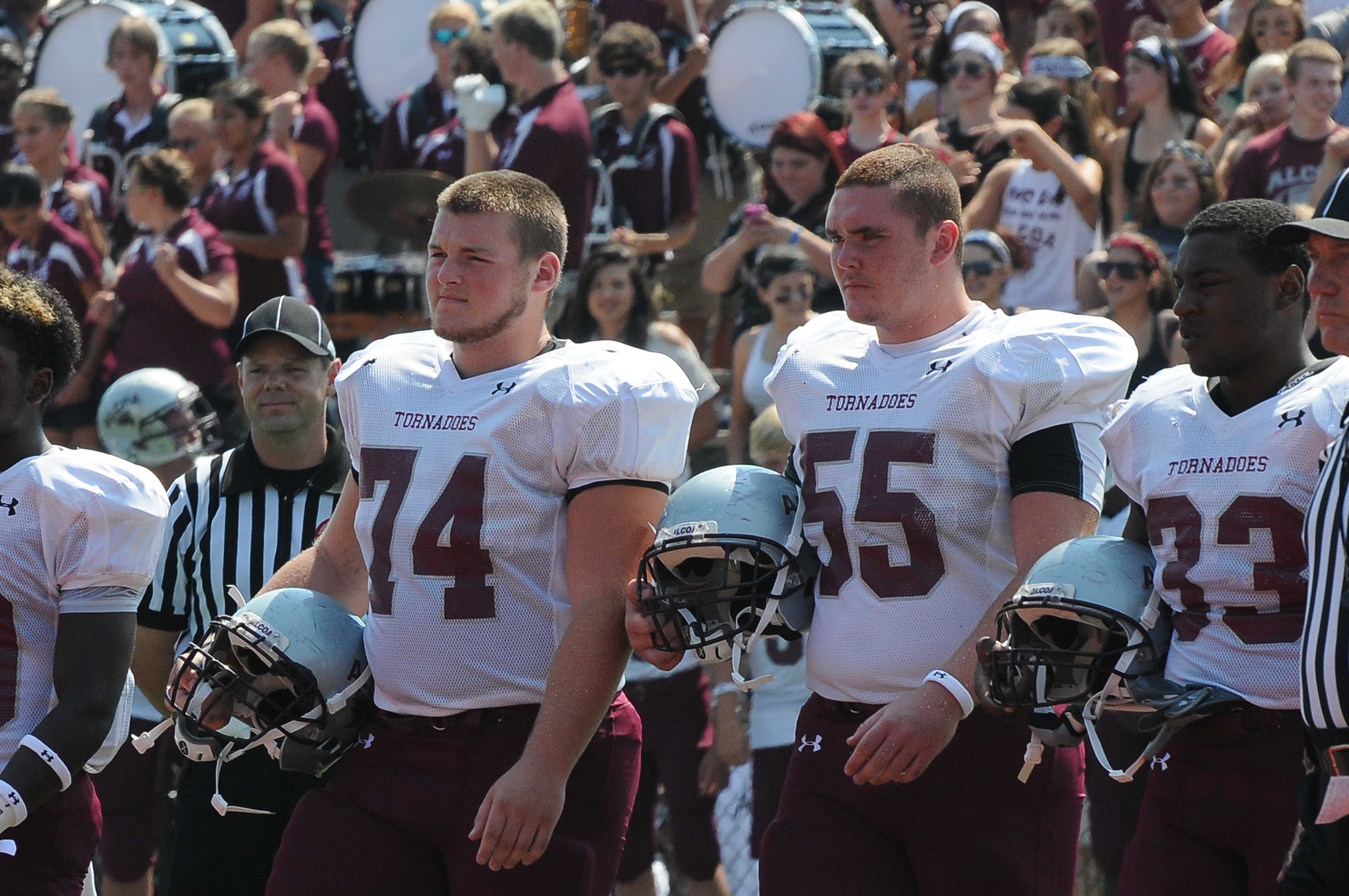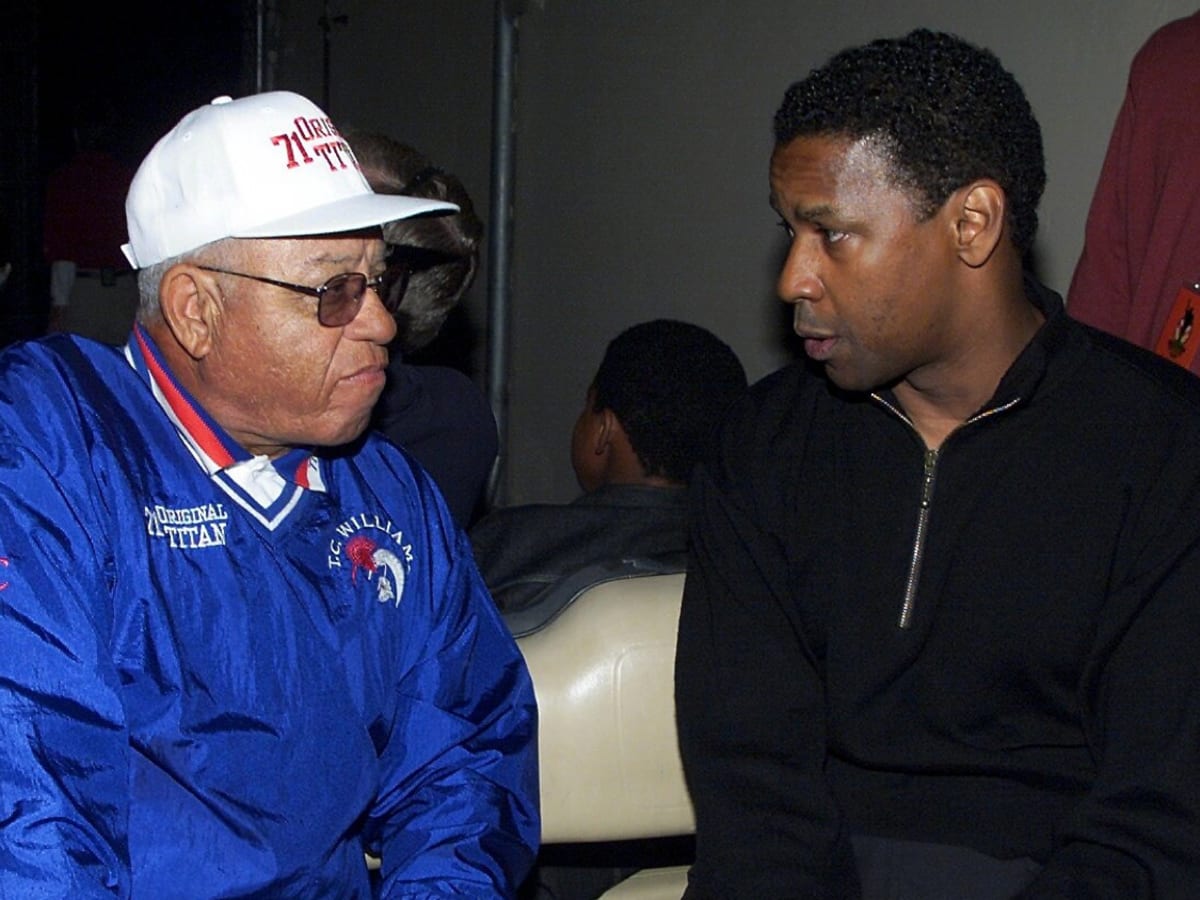Julius Campbell From Remember The Titans - A Legacy Of Unity
Julius Campbell - A Biography of a Football Legend
Personal Details and Bio Data
What Made Julius Campbell a Leader?
The Heart of the T.C. Williams Titans - Julius Campbell
How Did Julius Campbell Impact His Teammates?
Beyond the Field - The Influence of Julius Campbell
The Legacy of Julius Campbell - What Does It Teach Us?
Remembering the Titans - The Enduring Spirit of Julius Campbell
When folks think about stories of true grit and finding common ground, the name Julius Campbell often springs to mind, especially for anyone who has seen the truly moving film, "Remember the Titans." He was, you know, a central figure in a real-life tale about a high school football team in Alexandria, Virginia, facing the intense challenges of racial integration in the early 1970s. His story, as told on screen, captures the very real struggles and eventual triumphs of a group of young men who learned to look past differences and become a single, strong unit.
The film, which takes its inspiration from actual events, puts Julius Campbell front and center as a quiet, yet incredibly strong-willed, presence. He starts out as a player who keeps to himself a bit, but he soon finds himself in a position where he has to step up and lead, even when it feels like everything around him is pushing back. His journey shows us how someone can, in a way, break down complex situations into simpler parts, much like a sharp mind might sort through a lot of information to find the main idea. He had a knack for seeing what was truly going on with people, you know, almost like getting answers to questions you didn't even know how to ask.
His growth throughout the season is something truly remarkable to witness. He learns to connect with people who are different from him, and he helps others do the same. This ability to bring folks together, to make them see beyond surface-level disagreements, is a big part of why his story still resonates so much. It’s like he had a special way of looking at the big picture, figuring out the best path forward for everyone, and, you know, making sure the team could really move ahead as one.
Julius Campbell - A Biography of a Football Legend
Julius Campbell, the person portrayed in "Remember the Titans," was a real individual whose life story became a powerful example of overcoming division. Born in 1950, he grew up in Alexandria, Virginia, during a time of significant social change. His high school years at T.C. Williams High School coincided with the forced integration of schools in 1971, which brought together students from previously segregated institutions. This moment in history, as a matter of fact, set the stage for the dramatic events depicted in the film, where the football team became a microcosm of the larger societal shifts happening around them.
On the football field, Julius was a defensive end, known for his formidable presence and his ability to make game-changing plays. He wasn't just a player; he was, in some respects, a foundational piece of the team's structure, someone who could see how all the different parts of the game fit together. His strength wasn't just physical; it was also in his ability to understand the flow of the game, almost like someone who could look at a whole bunch of numbers and see the patterns hidden within them. He had a way of, you know, anticipating what was coming next, which made him a very effective player.
The film, while taking some creative liberties, truly captures the spirit of Julius Campbell's role in unifying the T.C. Williams Titans. He was a senior when the school integrated, making him one of the older, more established players. This position gave him a unique kind of responsibility, a chance to set the tone for how the team would deal with the new situation. He had to figure out how to work with new teammates, especially those from different backgrounds, and help them all come together for a common goal. It was, like, a really big task, but he rose to it.
Personal Details and Bio Data
| Full Name | Julius Campbell |
| Born | October 1, 1950 |
| Died | January 25, 2019 (aged 68) |
| Hometown | Alexandria, Virginia, USA |
| High School | T.C. Williams High School |
| Football Position | Defensive End |
| Notable Achievement | Member of the 1971 T.C. Williams High School Titans football team, which achieved an undefeated season and state championship amidst school integration. |
| Portrayed By | Wood Harris in the film "Remember the Titans" |
| Post-High School | Attended Western Carolina University, later worked for the city of Alexandria. |
What Made Julius Campbell a Leader?
Julius Campbell's leadership didn't just appear overnight; it grew out of challenging circumstances. At first, he was, you know, like many others, resistant to the changes happening around him, particularly the arrival of Coach Herman Boone and the integration of the team. Yet, as the season progressed, he began to see the bigger picture. He started to look at the team's struggles not just as individual problems but as connected pieces of a puzzle, almost like someone trying to make sense of a lot of different inputs to find the root cause of an issue. He had a way of, you know, figuring out what was truly holding them back.
His transformation into a true leader was marked by his willingness to confront uncomfortable truths, both within himself and among his teammates. He didn't shy away from difficult conversations, especially with Gerry Bertier, the white co-captain. This openness to, well, "chat with the data" of their disagreements, to truly understand the different perspectives, allowed him to bridge gaps that seemed impassable. It was like he could process all the different emotional signals and, in a way, find the best path for everyone to move forward, together.
Julius's leadership was also about setting an example through his actions. He was a dedicated player, always giving his all on the field, which naturally earned him respect. But beyond that, he started to "visualize" a different kind of team, one where race didn't matter as much as shared goals and mutual respect. This vision, you know, became a powerful motivator for others, helping them to see past their own biases and work towards something bigger than themselves. He truly helped them, you know, see the possibilities.
The Heart of the T.C. Williams Titans - Julius Campbell
Julius Campbell became, you know, the very heart of the T.C. Williams Titans, not just through his athletic skill, but through his profound influence on team cohesion. He understood, quite deeply, that winning wasn't just about plays and practice; it was about the players genuinely connecting. He had a sense for the team's overall well-being, almost like someone who could "analyze survey data" on morale and see where the weak points were. He was, in a way, always looking for ways to strengthen the bonds between everyone.
He was instrumental in breaking down the racial barriers that initially divided the team. His firm but fair approach, especially in his interactions with Gerry Bertier, showed everyone that it was possible to find common ground even when starting from a place of deep-seated prejudice. It was like he was, you know, building a "forecasting model" for team unity, predicting that if they could just get past their initial hang-ups, they would become an unstoppable force. He had a pretty good idea of what it would take to get them there.
The scene where Julius tells Gerry that he needs to "get past the color of my skin" and see him as a teammate, a brother, is a truly pivotal moment. This conversation, you know, acted like a catalyst, helping both players, and by extension the entire team, to see each other as individuals first. Julius's ability to simplify such a complex issue into a clear, undeniable truth was a sign of his wisdom. He helped them, in a way, to generate the "code" for true teamwork, a set of principles that guided their interactions moving forward.
How Did Julius Campbell Impact His Teammates?
Julius Campbell's impact on his teammates extended far beyond the football field. He didn't just teach them about plays; he taught them about life, about respect, and about standing up for what is right. His relationship with Gerry Bertier is, you know, the clearest example of this. It started with friction, but through honest conversations and shared experiences, it grew into an unbreakable bond. It was like Julius had a special knack for "chatting with their data," really getting to the core of what was bothering Gerry and helping him to see things differently.
He pushed his teammates to be better people, not just better players. When he saw someone struggling with prejudice, he didn't just ignore it; he addressed it head-on, but with a sense of understanding. He had a way of, you know, helping others "uncover trends" in their own thinking, to recognize their biases and work to overcome them. His leadership was about personal growth as much as it was about winning games, and that's something that really sticks with you.
His influence created a ripple effect throughout the team. When the two captains, Julius and Gerry, found their common ground, it sent a powerful message to everyone else. It showed that if they could do it, anyone could. This collective shift in mindset was, you know, a very powerful thing, transforming a group of divided individuals into a truly unified team. He helped them, in a way, to solve the "math problem" of integration, making it work for everyone involved.
Beyond the Field - The Influence of Julius Campbell
The influence of Julius Campbell, as portrayed in "Remember the Titans," reached well beyond the confines of the football stadium. His story became a symbol of hope and progress during a very turbulent time in American history. He represented the idea that, you know, people from different backgrounds could not only coexist but thrive together when given the chance and the right leadership. It was like he was a living example of how to "analyze and visualize" a better future, one where unity was the main goal.
His character taught important lessons about empathy and understanding. He showed that true strength isn't just about physical prowess, but about the courage to connect with others, to challenge prejudice, and to build bridges where walls once stood. He had a way of, you know, looking at the "numbers" of human interaction and seeing how to make them add up to something positive. He really understood what it took to bring people together.
The enduring appeal of Julius Campbell's story is a testament to the timeless nature of these lessons. His actions, his words, and his relationship with Gerry Bertier continue to inspire people to look past differences and find common humanity. His legacy, you know, serves as a powerful reminder that genuine change often begins with individuals willing to step up and lead by example, much like a powerful tool that helps you "find the best one for each task" in life's challenges.
The Legacy of Julius Campbell - What Does It Teach Us?
The legacy of Julius Campbell, as depicted in "Remember the Titans," teaches us a great deal about leadership, resilience, and the power of human connection. His story shows that true strength comes from being able to adapt to new situations and to help others do the same. He had a way of, you know, simplifying complex social problems into actionable steps, much like someone who can "generate code" to solve a difficult equation. He made the seemingly impossible feel very possible.
He teaches us that standing up for what's right isn't always easy, but it's always worth it. His initial reluctance to fully embrace the integrated team, followed by his profound commitment to making it work, illustrates a powerful personal transformation. This shift, you know, is a very strong message about growth and about overcoming one's own limitations. He showed that even when things feel overwhelming, you can still find a path forward.
Furthermore, Julius Campbell's story highlights the importance of individual relationships in driving broader social change. The bond he formed with Gerry Bertier became a model for the entire team and, in a way, for the community. It demonstrated that personal connections can break down systemic barriers. His ability to, you know, "forecast sales" of unity and cooperation within the team was truly remarkable, showing everyone that their collective success depended on mutual respect.
Remembering the Titans - The Enduring Spirit of Julius Campbell
The enduring spirit of Julius Campbell from "Remember the Titans" continues to resonate with audiences today, offering timeless lessons about overcoming adversity and building bridges between people. His portrayal captures the essence of a leader who, in a way, could "analyze and visualize" the path to success, not just on the scoreboard, but in the hearts and minds of his teammates. He had a real knack for seeing the bigger picture, you know.
His story reminds us that unity is not something that happens by chance; it requires intentional effort, difficult conversations, and a willingness to see beyond surface-level differences. Julius's character embodies this effort, showing us that even in the face of deep-seated prejudice, it is possible to forge powerful bonds. It's like he had a special kind of wisdom, you know, that helped him "uncover trends" in human behavior and guide people towards a better way of interacting.
The film, and Julius Campbell's role within it, serves as a powerful reminder of how sports can sometimes reflect and even shape society. The T.C. Williams Titans' journey was more than just about winning a football championship; it was about proving that people from different backgrounds could come together and achieve greatness. Julius's legacy, in a way, is a testament to the idea that, you know, solving complex human "equations" often comes down to simple acts of courage and understanding. He really showed everyone how it was done.

Julius Campbell Remember The Titans

Julius Campbell Remember The Titans

Julius Campbell Remember The Titans